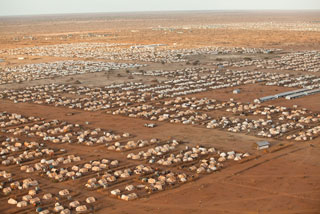 Following the devastating al-Shabaab attack on Garissa University on 2 April 2015, the Kenyan government announced the imminent closure of the Dadaab refugee camps and the repatriation of their 340,000 or more Somali residents. This is not the first time the government has threatened to close the camps, but outrage over increasing brutal al-Shabaab attacks have given the issue a new urgency. The government asserted that Dadaab presents a security risk, providing a haven and a source of recruits for al-Shabaab operatives. It also argues that Kenya has borne an inordinate burden in hosting the refugees for twenty-four years, and that conditions in Somalia no longer justify Somali claims of refugee status. On the other hand, refugee rights advocates argue that the Somali government could not cope with a mass repatriation, that conditions in Somalia do not meet legal standards for the safe return of hundreds of thousands of refugees, and that Kenya would violate international law by forcibly repatriating them.
Following the devastating al-Shabaab attack on Garissa University on 2 April 2015, the Kenyan government announced the imminent closure of the Dadaab refugee camps and the repatriation of their 340,000 or more Somali residents. This is not the first time the government has threatened to close the camps, but outrage over increasing brutal al-Shabaab attacks have given the issue a new urgency. The government asserted that Dadaab presents a security risk, providing a haven and a source of recruits for al-Shabaab operatives. It also argues that Kenya has borne an inordinate burden in hosting the refugees for twenty-four years, and that conditions in Somalia no longer justify Somali claims of refugee status. On the other hand, refugee rights advocates argue that the Somali government could not cope with a mass repatriation, that conditions in Somalia do not meet legal standards for the safe return of hundreds of thousands of refugees, and that Kenya would violate international law by forcibly repatriating them.
On 29 April, 2015, the Nairobi Forum hosted a panel to discuss the legal and humanitarian implications of a mass repatriation of Somali refugees.
Moderator
Ibrahim Farah
Somali Academic
Panellists
Eva Camps
UNHCR
Gemma Davies
Regional Durable Solutions Secretariat
Solomon Wasia Masitsa
Forced Migration Program, Kituo Cha Sheria
Wairimu Munyinyi-Wahome
Norwegian Refugee Council
Melissa Philips
Regional Mixed Migration Secretariat



